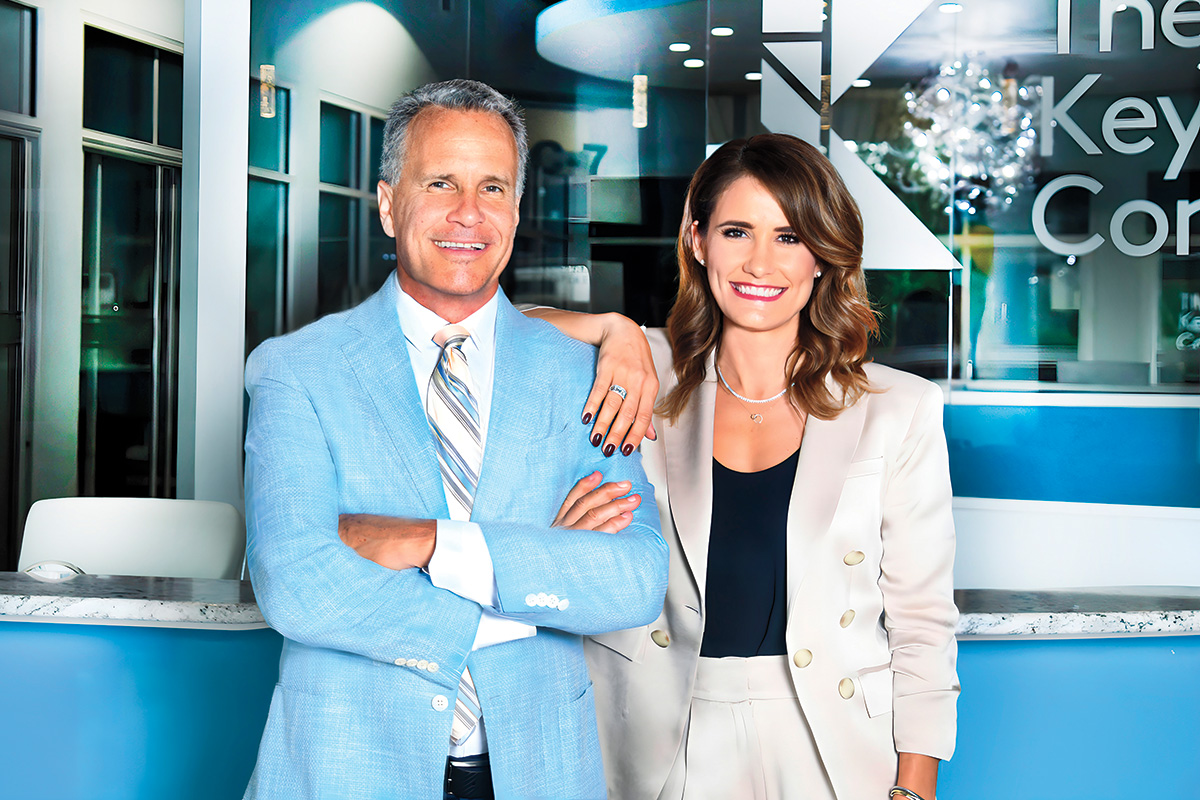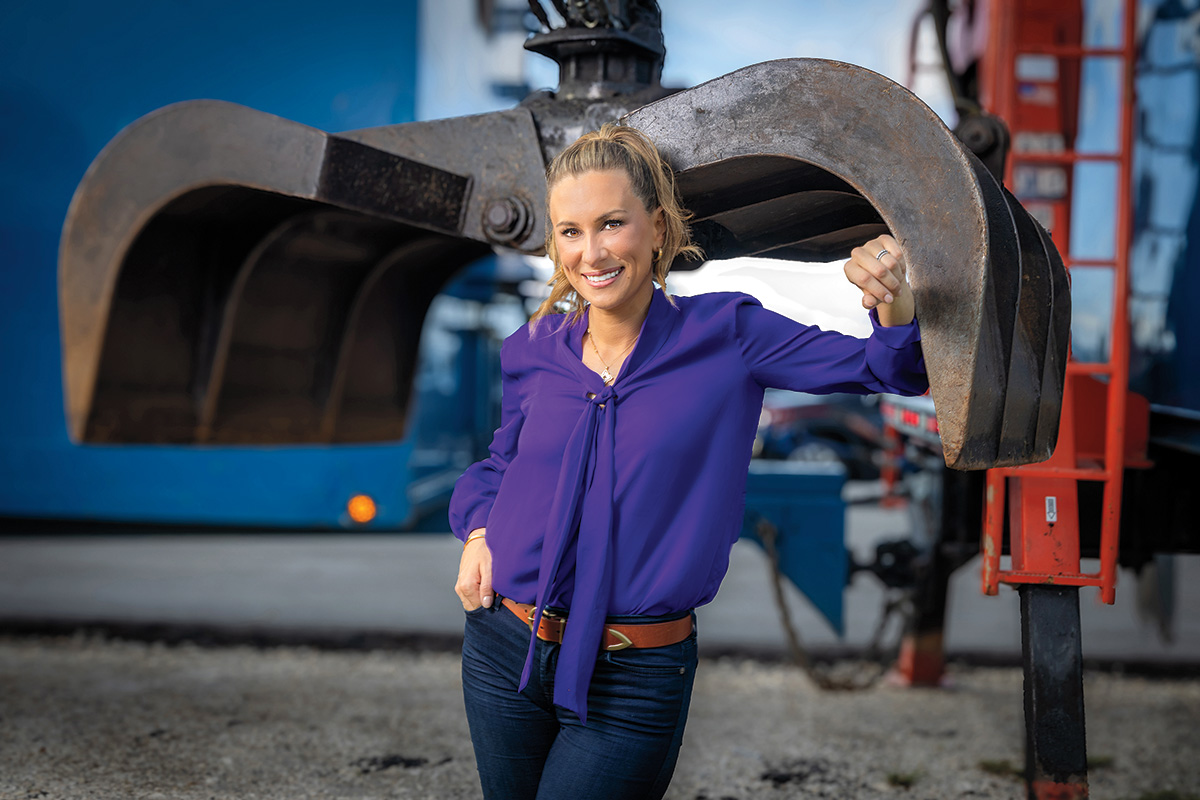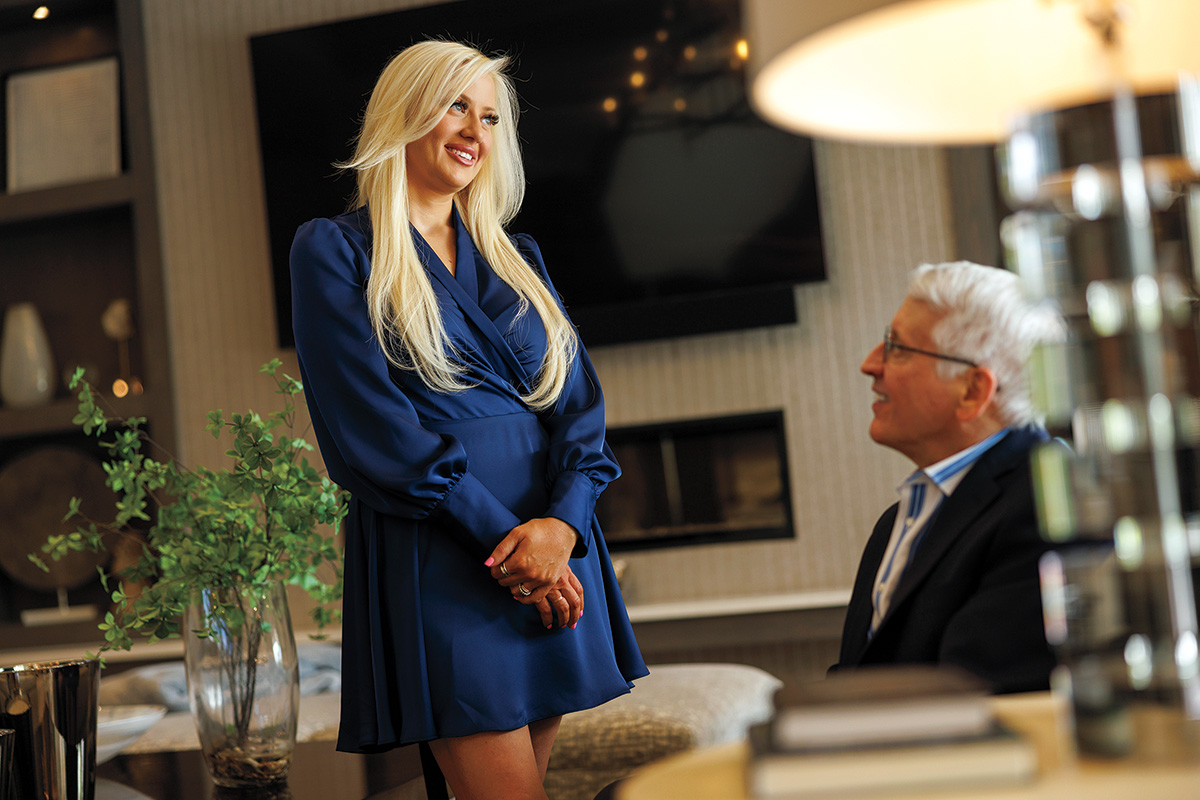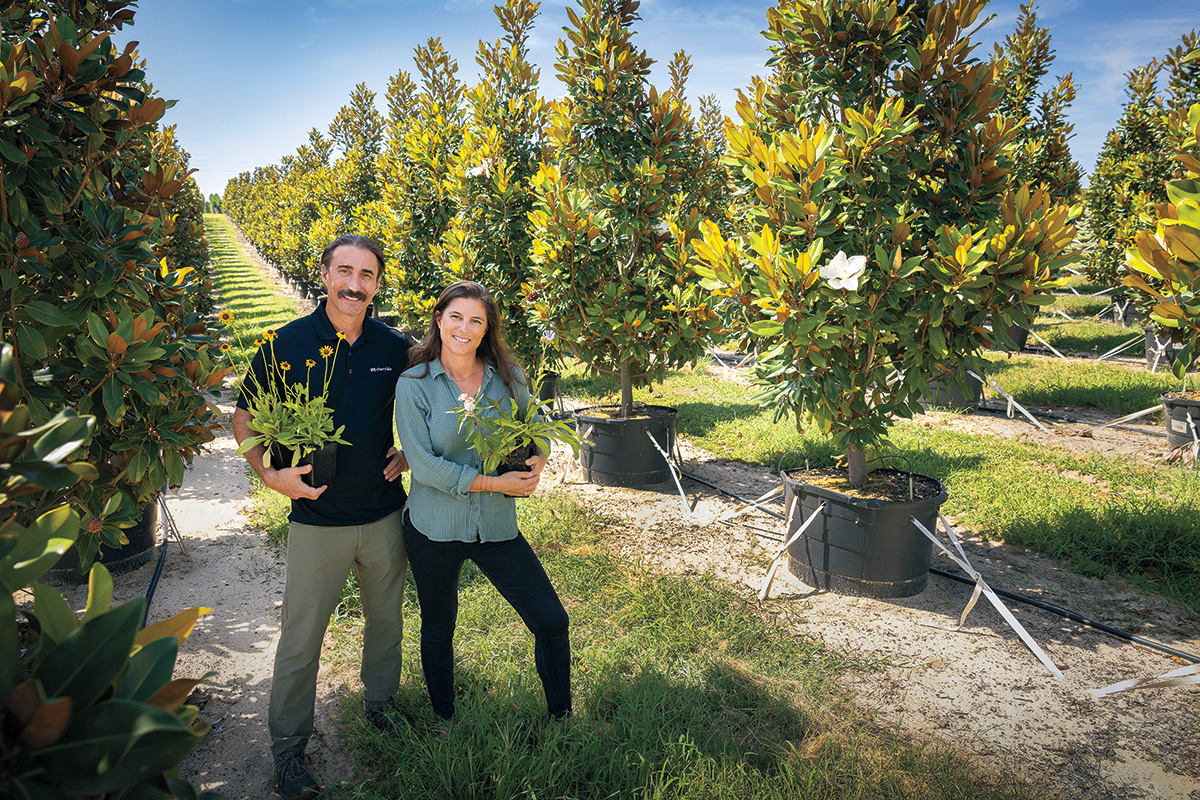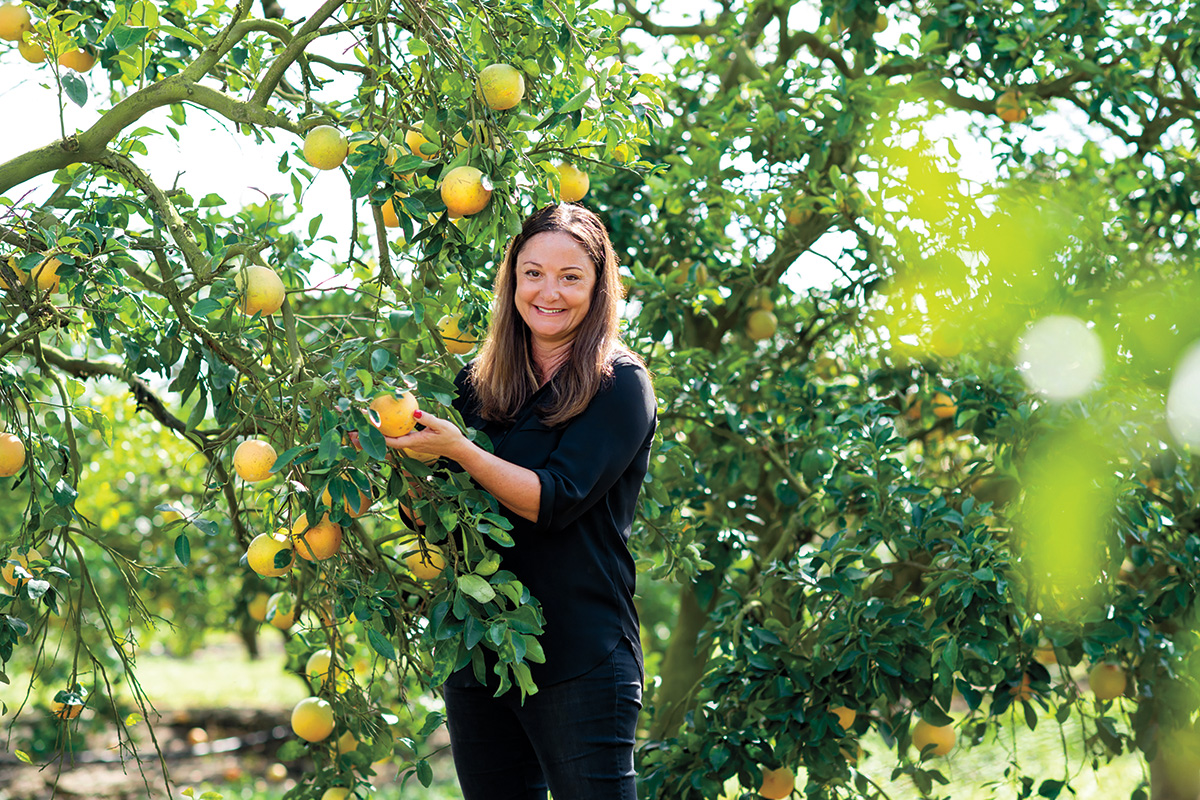When they were boys growing up on opposite ends of South Florida, Phil Wood and Mike Pappas became friends hanging out while their fathers attended real estate conferences. “We used to run around causing trouble in the hotels,” Wood remembers.
When it was time for their fathers to pass their respective family businesses — The Keyes Company in Miami and John R. Wood Properties in Naples — to the next generation, they handed control to their sons. Both companies flourished in the booming real estate markets on the Atlantic and the Gulf coasts. In the last two years, Mike and Phil decided it was time for them to pass their businesses to the next generation, so the fathers handed control to their daughters.
“If you don’t have talented heirs, which we’re fortunate and blessed to, then you sell,” Pappas says.
Family businesses by definition are private, so hard data is hard to come by, but anecdotally “it’s getting better, I think” for women getting the chance to succeed their fathers, says Roland Kidwell, Florida Atlantic University’s DeSantis distinguished professor of management/entrepreneurship.
Regardless of whether the heir is a son or daughter, a failure to plan is one of the biggest threats to a business in generational change, says Megan Harper, one of Kidwell’s doctoral students who is researching the impact of female leadership on family firm performance.
Previous studies have found that women who take over family businesses generate growth and revenue similar to male heirs, she says. But family dynamics can be a wild card.
Florida Atlantic University Professor Roland Kidwell describes three types of patriarchs: the monarch who holds power until death, the general who cedes the title but micromanages, and the statesman who fully entrusts the new leader.
Harper comes to the issue with experience — her parents owned the Kentmorr Restaurant and Crab House in Stevensville, Md. She spent three years as general manager during the COVID-19 pandemic before her parents decided to retire.
She saw firsthand the kinds of generational tension in working to preserve a family legacy while also trying to incorporate her own ideas. Next-generation CEOs may feel pressure both to preserve what the parent built but also to innovate and grow.
“I think I had an appreciation for what my parents had done,” Harper says, “but also the necessity of the times required innovation. That’s what a lot of the next generation is going to say — ‘Yes, Mom and Dad, I understand what you’ve been doing. I know it, I’ve grown up in it.’ But at the same time, we can’t still just do billboards on the side of the road. You have to have Instagram … something as simple as that. Or something as major as we have to build a new product because our product is no longer adequate for the market.”
There are three types of patriarchs, Kidwell says — the monarch who holds power until death, the general who cedes the title but still tries to micromanage, and the statesman who fully entrusts the new leader.
The women leading the businesses below experienced variations of those three styles, but each is benefiting from long-term succession planning that included time to learn their family businesses inside and out.
RESPONDING TO PERSONAL DISASTER
Even though she had been the CEO for more than eight years, Brittany Perkins Castillo wasn’t looking forward to the conversation she was about to have last December with her father Randy Perkins, founder of Deerfield Beach-based emergency response and disaster recovery company AshBritt.
Randy had built the company three decades ago and helped pioneer an industry. AshBritt, named for his first two daughters Ashley and Brittany, has responded to hundreds of natural disasters — hurricanes, floods, fires and even the pandemic. Castillo may have been in charge, but her dad was still actively involved. He could be fiery, and she braced for an angry response after letting him know a project hadn’t gone well and lost money. But as she stood across the desk in front of him, he showed an understanding she didn’t expect. “You wanna know the biggest difference between me and you?” he asked. “I didn’t have to tell anyone when I screwed up.”
“It was really powerful,” Castillo says.
The impact of his words only deepened five days later when Randy Perkins suffered a fatal heart attack at age 60 while exercising. He had received a clean bill of health following a full physical last year, exercised every day and “was a salmon and quinoa eater.”
Castillo had to cope with losing her father, her kids losing their grandfather and the business losing its charismatic founder. More than half of AshBritt’s employees have been with the company for 20 years or more. Perkins’ death was both shocking and created a void in an industry he helped create.
“I think what people are saying is life’s a lot quieter. He was a hurricane, that’s what my mom said,” Castillo says. Despite the grief and pain, 2025 is shaping up to be AshBritt’s best year financially. Some of her employees weren’t able to spend a full week at home until August.
“We work 24/7/365 when there’s a disaster event,” she says. “You live in this world — it’s nonstop disaster events.”
Those demands can take a toll on families, something she saw first-hand growing up. Though still grieving, she feels fortunate for the eight years she worked closely with her father, enjoying a mentorship her three sisters weren’t privy to.
“Business is very hard,” she says. “Family dynamics are very hard. So family dynamics tied to business are challenging.”
Castillo, 39, remembers her father driving her an hour each morning to St. Thomas Aquinas High School in Broward County, listening to financial talk radio and learning about the business. But at 18, she wanted out of Florida, so she went to Vanderbilt University and later earned a law degree from the University of Texas.
She practiced law in Austin and spent about 18 months in Qatar, but her father kept her engaged with the company during her 20s, and she secured a seat on AshBritt’s board of directors. Not long after that, a decade-long succession planning conversation started.
Castillo was named CEO in 2016, but her father stayed close to the business. It wasn’t always fun, she says, but it helped her grow as a CEO.
“We had a dance,” she says. “There was a lot of tug-of-war that happened over certainly the first five years I was CEO. It was certainly sparring, like a jiu-jitsu. My dad said I would just grind him down and he would throw his hands in the air. That’s a real challenge. And to do that and stay talking?”
It helped that she had two young children who served “as a peacekeeping mechanism.”
As CEO, her legal background is proving to be an asset for a business rooted in giant government contracts and regulation. In 2021, AshBritt won $1.75 billion in Defense Department contracts to be the prime disaster recovery partner in 25 states. But Castillo says it’s important for her to be out in the field to lead effectively.
“So much is happening in real time. You have to make decisions quickly based on the best information, but often incomplete information. You have to pivot and adjust when new information comes in, so you’re constantly in the immediate aftermath of any disaster having to be very decisive but also pivot, reassess, change decisions multiple times a day.”
Castillo says she doesn’t feel pressure. “I own all day long and am grateful that I get the opportunity to be CEO of a company that he laid the foundation for. … How fortunate am I that I get to lead this company.”
That gratitude has led her to write two children’s books about coping with disasters and to create the Women in Emergency Management Initiative in 2019 as a support and mentoring network to bring more women into a male-dominated field.
The real estate industry has become more inviting for women leaders, says Corey McCloskey. “To watch that evolve has been pretty phenomenal.”
But Castillo acknowledges she’s a lot like her father, aggressive and determined.
“We have this legacy in the company, and I plan on continuing to work with our team to build it 10- fold,” she says. “I think, humbly, that that’s going to be very easy for us to do.”
REAL ESTATE TRUST
Private, family-owned real estate brokers are increasingly rare in a field dominated by national players like Sotheby’s, Coldwell Banker and Berkshire Hathaway. That reality increases pressure on Corey McCloskey and Christina Pappas to ensure that their family brokerages, John R. Wood Properties and The Keyes Company, adapt to changes in the field and continue to thrive.
“I don’t know many brokers’ daughters,” Pappas says. “There’s a small group of families left in this business and not many of us are women working in their father’s or grandfather’s companies. Many are still sons.”
Keyes marks its centennial next year. Pappas became CEO in 2023, taking command of a company that did $9 billion in sales that year, with 4,000 Realtors working out of 50 offices. John R. Wood was founded by McCloskey’s grandfather in 1958. She was named CEO in March 2024, leading 900 agents in 21 offices who drove $4.5 billion in sales last year. The agency joined Christie’s International Real Estate in 2022 but remains fully independent and family-owned.
Both women worked in hospitality before the lure of the family business drew them home. For Pappas, who was working in Los Angeles, her grandfather’s death in 2011 was the turning point, making her realize she wanted to be closer to family. Three months later she was back in Florida with a real estate license.
McCloskey was working as a bridal liaison at The Breakers in Palm Beach “dealing with the bride’s every whim.” The job taught her patience, that no request was too large or too small. “I have some pretty crazy stories,” she says.
But when her father, Phil Wood, called and suggested she join the company, she agreed, starting as a listing agent and climbing the ranks. McCloskey’s sister, Nikki Wood, is the agency’s vice president for philanthropy and compliance.
Succession was an arduous process, their father says. “I never would have dreamed that I would spend so much time talking to our estate attorney, our CPA and our corporate attorney.”
While their fathers grew up as friends, McCloskey and Pappas met about a decade ago through their respective work with the Florida Association of Realtors. In 2022, Pappas became the youngest person elected president.
That was a key validator, she says, because it meant her peers saw her ability, not that she was there simply because her dad said, “This is my daughter. Listen to her.”
Their business has become much better for women leaders, says McCloskey, who was named the 2022 Naples Area Board of Realtors Realtor of the Year. “I remember traveling with Dad to conferences that were older white male-dominated. To watch that evolve has been pretty phenomenal.”
That doesn’t mean change in leadership or change in practice come easily. A lot of John R. Wood agents have been doing the job a certain way for years “and don’t necessarily like changes,” McCloskey says. When she introduces new technology or systems, she hears protests of “what’s wrong with what we have?”
Pappas experiences the same thing at The Keyes Company. She has added an AI-driven contracts program that helps have all the forms prepared before a listing appointment. No pun intended, but it’s been a tough sell for some agents. “To Corey’s point, I think leadership is about bringing people into the future kicking and screaming,” she says half-jokingly.
While their companies continue to thrive, Pappas says it’s difficult for a successor — especially a daughter — to be recognized for their achievements. “The phrase is if you do well in the business, it’s because your father set you up, and you’re born into it,” she says. “And if you fail, it’s like, ‘See, they couldn’t do anything. We knew they were deadbeats.’”
THE THREE-HEADED CEO
Though they grew up on their family’s citrus farm, Melanie Ressler, Tim Sallin and Chloé Gentry spent years apart as each attended different high schools in their parents’ native France.
Now Ressler, 50, Sallin, 48, and Gentry, 45, share a room — their office as co-CEOs of IMG Enterprises — which oversees IMG Citrus in Indian River County and its 11,000 acres of grapefruit crops and Cherrylake, a Lake County landscape and ornamentals company that has designed and installed landscaping at some of the region’s biggest developments.
Working so close together “is really intentional,” Gentry says, “because we know that we can’t be together all the time … so having this combined office space allows us to be together when we can and overhear the conversations to stay informed” about the business.
They were named co-CEOs in 2021 when their parents, Michel and Veronique Sallin, decided to retire and move back to Normandy, France, where Michel’s grandfather grew apple trees.
IMG’s sibling CEOs are implementing new strategies to protect their grapefruit trees from citrus greening and believe innovation will save Florida’s citrus industry.
Throughout their lives, the Sallins talked with their children about humility, collaboration and protecting family harmony, but the true lessons came through example, Tim Sallin says. “At home we really saw the role modeling of my father and mother talking through, brainstorming business decisions and business strategies. That certainly must have shaped us.”
Each sibling brings a specific strength, Sallin says. Ressler has a finance background and served as CFO when their parents ran the company. Gentry handles human resources, marketing and organizational development while Sallin focuses on sales and operations.
“The ideal CEO kind of has all three of those things,” he says, “but I don’t know that there are a lot of ideal people out there in the world who can really bring all that together,” he says. “I have no thoroughness and no cautiousness, but my sisters do. We complement each other in those ways.”
When they were named co-CEOs in 2021, IMG was a $90-million business. Revenue has more than doubled since then, Sallin says. In 2023, they added a 185,000-sq.-ft. cold storage and packaging facility with 20 dock doors in Indian River County, as well as 1,000 more acres of farmland.
They employ 550 people year-round, adding about 150 more during peak season.
IMG’s growth makes management more challenging, Gentry says. “That’s where I always feel ‘thank goodness we’re three. We don’t have to carry the load on our own,’” she says. “It’s a big company now. It’s really grown, and it carries different problems than what my parents were dealing with.”
For example, they built IMG’s first Citrus Under Protective Screen (CUPS) structure in 2022, a 13-acre, 16-foothigh screened enclosure meant to protect grapefruit trees from citrus greening. These can be difficult to build and vulnerable to hurricane winds, but their generation is charged with rethinking how citrus can remain viable in the state, Gentry says. “We believe in Florida citrus and specifically Florida grapefruit that has really unique taste qualities, and we believe that it is worth saving.”
They’ve also reduced chemical use in groves, and Cherrylake emphasizes native and other plants that require less water. Cherrylake did irrigation and landscape installation at Universal’s new Epic Universe and at Del Webb communities, using native plants like sabal palms, firebush and schefflera.
A lot of citrus growers have left the industry, Gentry notes, “but that’s the opportunity. The ones that are left are committed … and ready to innovate.”
Their parents are enjoying retirement, Gentry and Sallin say, available as a sounding board when needed, but happy to let the three CEOs run things.
Having two women at the helm is a “huge advantage” in what is still a male-dominated industry, Sallin says, because “of the perspective and the decision-making and the judgment that comes from having (gender) diversity.” Many competitors, while successful, lack that perspective.
Among them, Ressler, Sallin and Gentry have eight kids ranging in age from 10 to 25. It’s not too soon to start thinking about getting some of them ready to be IMG’s third-generation leaders. There have been conversations, and a few of the older children have interned with the business, Sallin says.
It would take 10 to 15 years to fully prepare the ones who want to be successors. For now, they’re trying to instill a sense of “what it means to have ownership in a family business like ours and mostly understand the responsibility that it is.”













